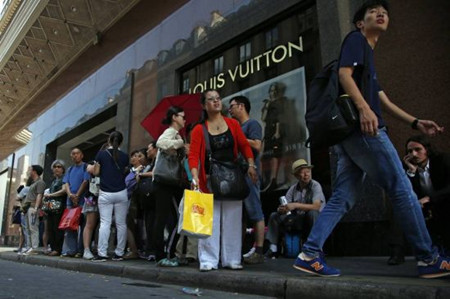Coffee history and culture have been controversial and have been considered important factors affecting children's learning.
Nowadays we all know that coffee is a good thing, but people used to think differently. Let's look back at the endless debate about coffee over the centuries.

16th century: coffee can make people excited
According to legend, a shepherd named Caldi in Ethiopia found that his sheep suddenly became excited after eating a kind of oily green leaves and red berries. He tried the plant himself, which is what we know today as coffee.

16th century: coffee leads to promiscuity
The Arabs were the first to open coffee shops, and coffee has been criticized ever since. According to writer Ralph Hartox, customers of coffee shops are often caught up in gambling and sexual relationships.

17th century: coffee cures alcoholism
As coffee became famous, the pharmaceutical industry began to trumpet its benefits. Especially in England, where alcoholism is prevalent, it is regarded as a cure for alcoholism.

17th Century: coffee cures all kinds of diseases?
This 1652 article was written by Pasqua Rose é e, a coffee shop owner in London, to promote the efficacy of coffee. Coffee can help digestion, relieve and cure gout and scurvy, relieve coughing, headaches and stomachaches, and even prevent miscarriage, the article said.

18th century: coffee allows people to work long hours
In London in 1730, tea replaced coffee as people's daily drink. The American colonists had a preference for tea until the Boston Tea Popularization in 1773 characterized tea drinking as an "unpatriotic act". But since the tea incident, there have been more and more coffee shops. The remarkable pick-me-up effect made people believe that drinking coffee could make the colonists work longer.

19th century: coffee shortage
In the mid-19th century, when the civil war broke out in the United States, coffee became in short supply, so some carbon-roasted cereal drinks became substitutes and became popular. Such as Kellogg's caramel coffee and C.W. Post's Postum (still on sale), these drinks like to boost sales by advertising boycotts of coffee.

19th century: coffee may lead to blindness
Postum's ads are particularly radical, saying that coffee is as dangerous as morphine, cocaine, nicotine and brucine, and can cause blindness.

1916: coffee hinders growth and development
At the beginning of the 20th century, there was a public opinion that coffee is harmful to health in the medical and public fields. The magazine Good Housekeeping talks about the hampering effects of coffee on growth and development.

1927: coffee is the culprit of children's poor grades.
In 1927, a science magazine published a survey of 80,000 primary and junior high school students. The researchers were "shocked" to announce that children who drank more than one cup of coffee a day performed poorly academically.

1970s: coffee and Heart Disease
In 1978, the year Baseball Hall started selling Mr.Coffee on television, a study in the New England Journal of Medicine reported that blood pressure rose sharply after three cups of coffee. An early 1973 study found that drinking one to five cups of coffee a day increased the risk of heart disease by 60%, while people who drank more than six cups increased by as much as 120%.

The beginning of the 21st century: multivariate analysis
Scholars began to gather hundreds of research results, and introduced scientific principles to randomly control cross-factors, such as smoking control variables, the results basically prove that coffee is a good thing. But at the same time, coffee also brings some negative effects. A 2001 study found that drinking coffee had a 20% higher risk of developing urinary cancer, but not drinking tea. This finding was mentioned again in a multivariate analysis in 2015. Therefore, for people with such diseases in family inheritance, it is best to drink tea. A 2010 report pointed out that drinking coffee may increase the risk of lung disease, but the report also acknowledged that it failed to rule out the interference of smoking on the results of the study.

2007-2013: coffee reduces the risk of stroke and some cancers
An analysis of 11 studies between 1966 and 2011 found that there was no negative correlation between coffee drinking and stroke among the 500000 people surveyed. Another 2012 report, a collection of studies from 2001 to 2011, found that drinking more than one cup of coffee a day can prevent stroke. Drinking more than two cups of black coffee a day can reduce the risk of liver cancer by 43 percent, the report said, citing data from other studies in 2013. The survey followed 59000 men between 1986 and 2006 and concluded that coffee significantly reduced the prevalence of prostate cancer, a deadly disease.
Another similar study found that people who drank four cups of coffee a day had the lowest risk of heart disease, and less than ten cups had no negative effect. For the overall incidence of heart disease, a study of 36 reports and a survey of 1.2 million people concluded that drinking coffee in moderation can reduce the incidence of heart disease. and even excessive drinking (more than five cups a day) does not lead to an increase in the incidence.

2015: coffee is actually a healthy drink
What is the effect of coffee on the overall risk of death? in 2013, a report of 20 studies and another of 17 studies found that drinking coffee slightly reduced overall mortality among the more than 1 million people surveyed. In response to the general trend, the USDA declared in 2015 that "we recognize that drinking coffee is a healthy lifestyle" and that it is best to drink three or five cups of coffee a day (up to 400mg caffeine) without milk and sugar.
Source: book flipping party
Important Notice :
前街咖啡 FrontStreet Coffee has moved to new addredd:
FrontStreet Coffee Address: 315,Donghua East Road,GuangZhou
Tel:020 38364473
- Prev

After Paris was attacked, the economy was hit hard. Coffee culture was changed. Chinese tourists cited "spring".
BEIJING, Nov. 27 (Xinhua) According to France's European Times, Paris has always been a gathering of tourists as one of the world's popular travel destinations. But after the terrorist attacks of november 13th, everything quietly changed. Paris is no longer a romantic city for foreign tourists because of fears of another terrorist attack. In addition, for personal safety reasons, the French government was also
- Next

International famous cross-border wind blows into Hangzhou. Tired, sit down and have a cup of coffee.
CHOCOFFEE launched strawberry sundae HYSSOP black shop for Christmas midsummer night cheesecake coffee barista is making coffee in March, Ralph Lauren opened a Polo Bar restaurant in downtown New York, USA; in May, Herm è s opened a restaurant in Seoul, South Korea, and Armani opened a cafe in Cannes, France; in June, Burberry opened a cafe in London, England; in July, 1921
Related
- Unexpected! Ruixing Telunsu lattes use a smoothie machine to foam milk?!
- % Arabia's first store in Henan opens into the village?! Netizen: Thought it was P's
- Does an authentic standard mocha coffee recipe use chocolate sauce or powder? Mocha Latte/Dirty Coffee/Salty Mocha Coffee Recipe Share!
- What is the difference between Vietnam egg coffee and Norway egg coffee? Hand-brewed single product coffee filter paper filter cloth filter flat solution!
- What is the difference between sun-cured and honey-treated coffee? What are the differences in the flavor characteristics of sun-honey coffee?
- How to make Italian latte! How much milk does a standard latte use/what should the ratio of coffee to milk be?
- How to make butter American/butter latte/butter Dirty coffee? Is hand-brewed coffee good with butter?
- Is Dirty the cold version of Australian White? What is the difference between dirty coffee/decent coffee and Australian white espresso?
- Relationship between brewing time and coffee extraction parameters How to make the brewing time fall to 2 minutes?
- Got entangled?! Lucky opens a new store, Mixue Ice City, and pursues it as a neighbor!

